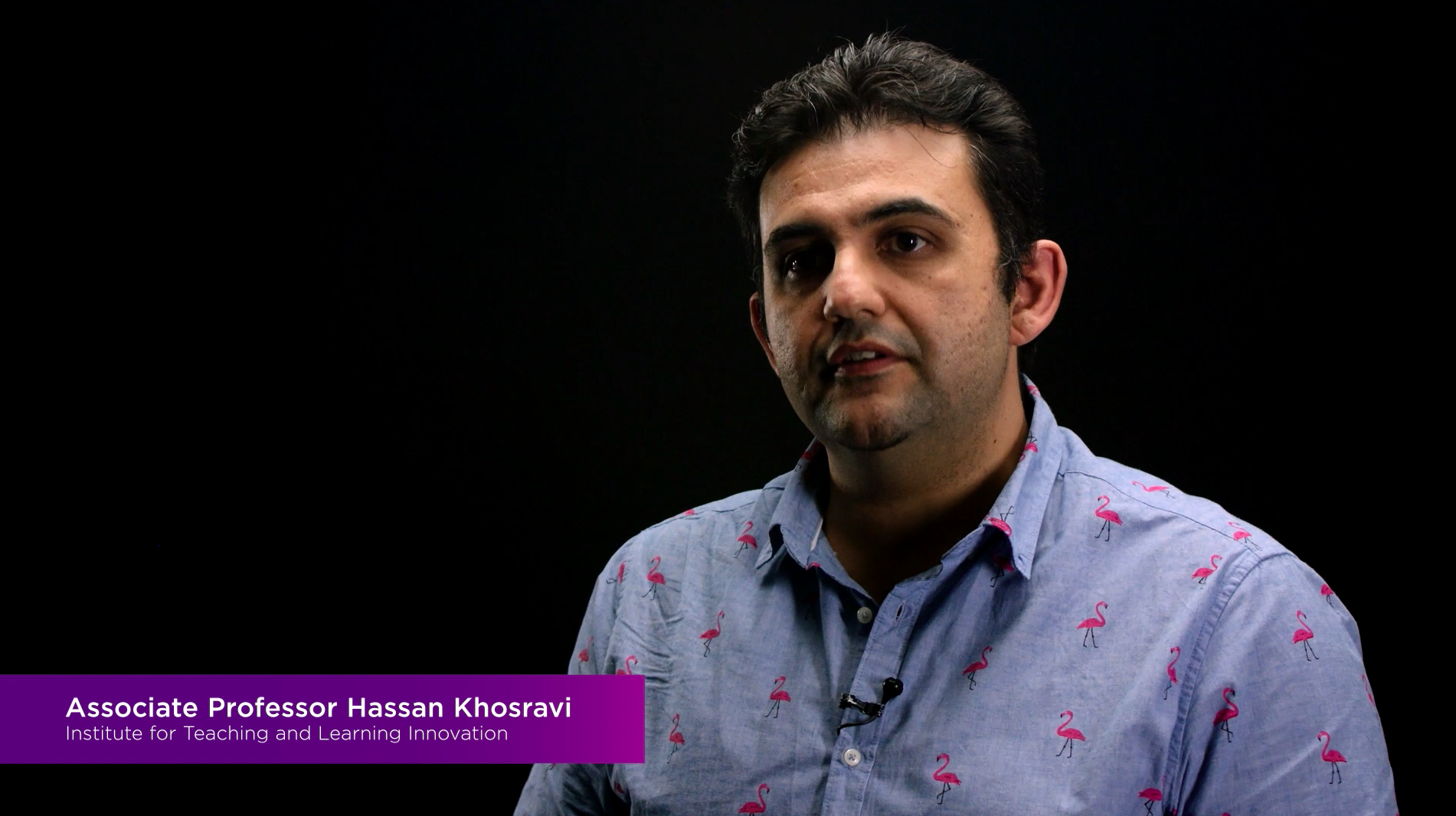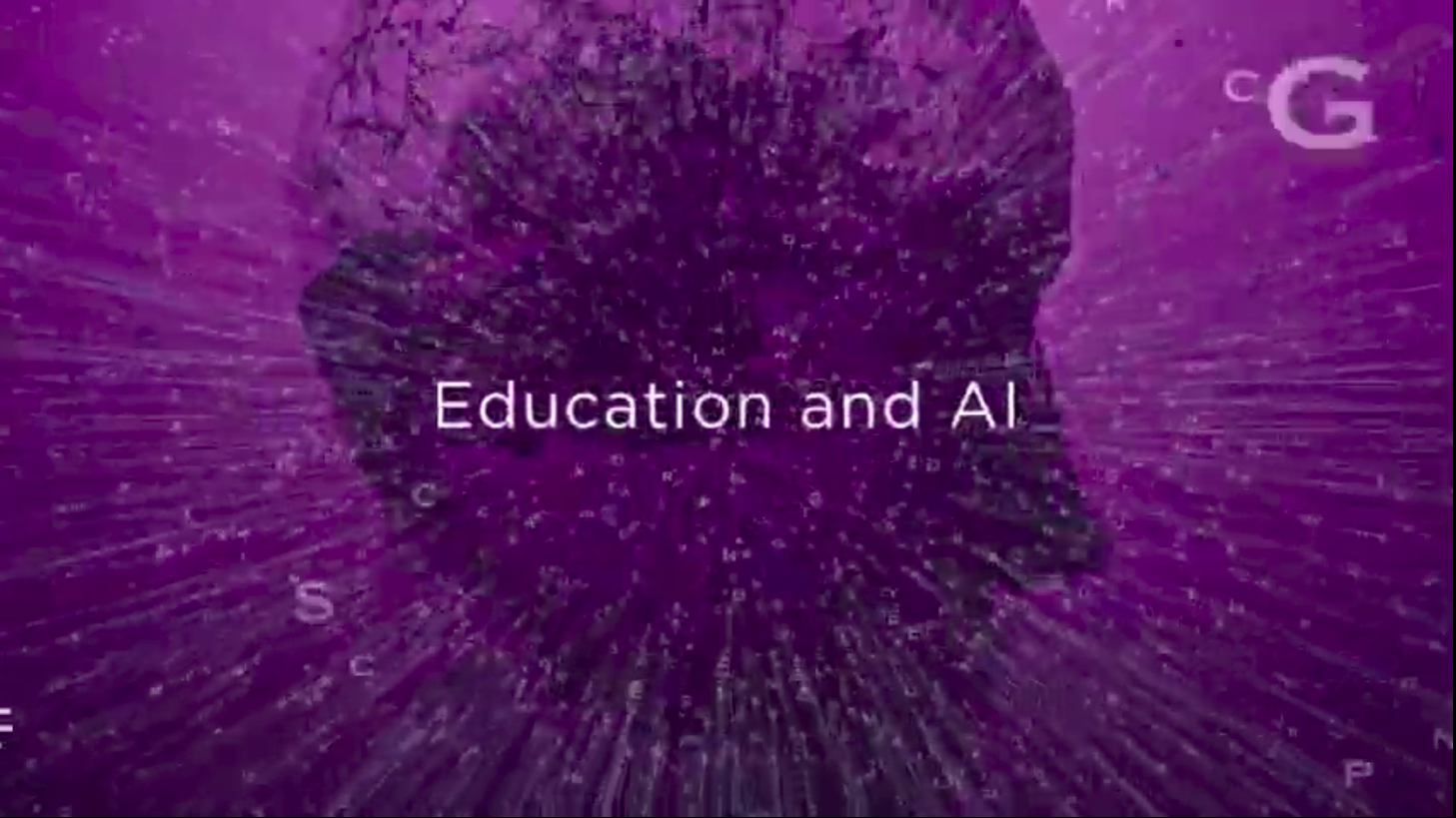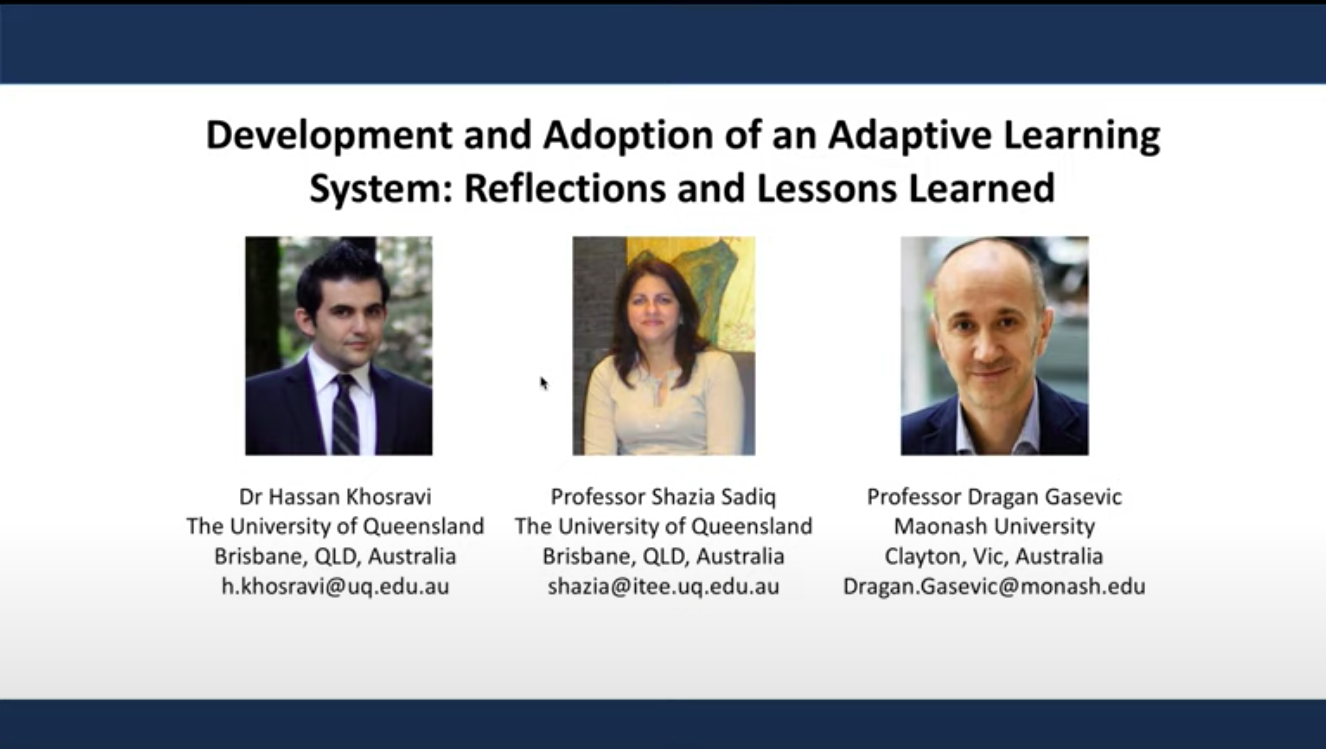
Panel on ChatGPT and the Future of Education
Video
Join us for this webinar where we explore the potential benefits and drawbacks of using ChatGPT in the educational setting. ChatGPT is specifically designed to generate high-quality human-like responses to user queries across a wide range of topics and contexts. The seminar discusses how this capability can be leveraged by instructors and students and the ways it can transform the way we deliver instruction, assess student progress, and provide feedback. This seminar will be of particular interest to educators, educational researchers and anyone interested in the intersection of technology and education.
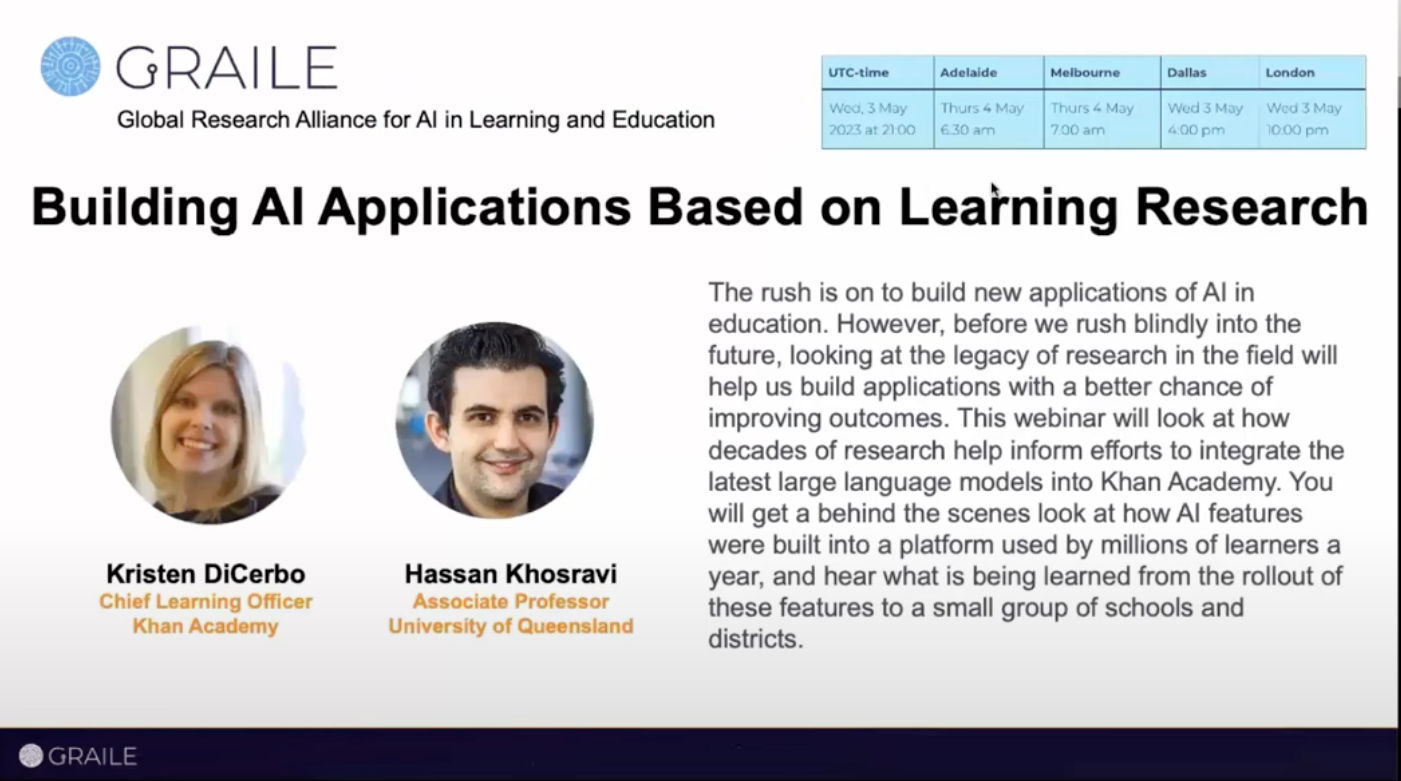
Building AI Applications Based on Learning Research
VideoThe rush is on to build new applications of AI in education. However, before we rush blindly into the future, looking at the legacy of research in the field will help us build applications with a better chance of improving outcomes. This webinar will look at how decades of research help inform efforts to integrate the latest large language models into Khan Academy. You will get a behind the scenes look at how AI features were built into a platform used by millions of learners a year, and hear what is being learned from the rollout of these features to a small group of schools and districts.
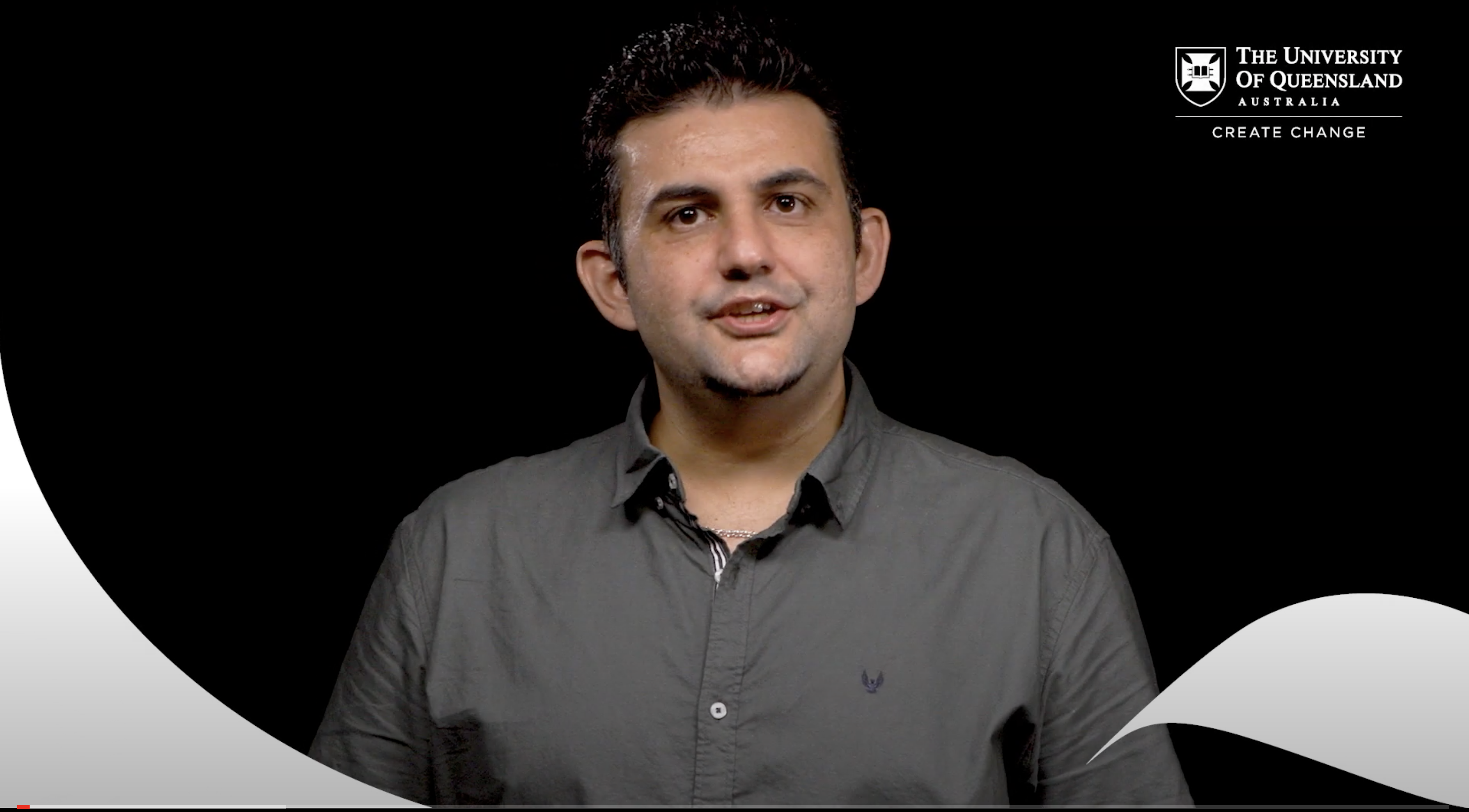
The RiPPLE platform
Short VideoA short video about a platform I have created, which is called RiPPLE. RiPPLE leverages the latest insights from the learning sciences and artificial intelligence (AI) to transform student learning into an active, social and personalised experience. It enables instructors to partner with their students to create pools of high-quality learning resources, which are used to recommend personalised content to students based on their mastery level. This creates a win-win-win situation. Students get the opportunity to develop competencies in creating novel content, critical thinking, feedback literacy and communication in a collegial environment. Instructors get to develop large practice banks of resources for their courses without the intense time commitment that is usually required for this kind of development. And universities get the ability to provide a tailored learning experience for students across different disciplines at a very low cost.
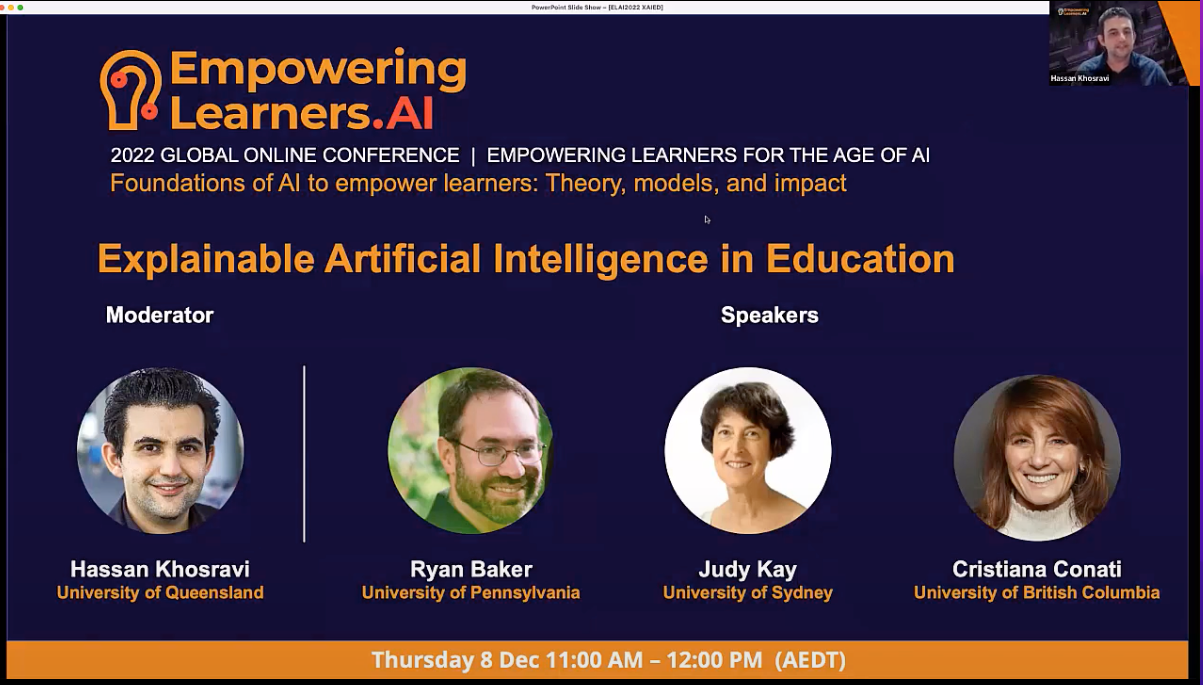
A Panel on Explainable AI in Education
VideoThere are emerging concerns about the Fairness, Accountability, Transparency, and Ethics (FATE) of educational interventions supported by the use of Artificial Intelligence (AI) algorithms. One of the emerging methods for increasing trust in AI systems is to use eXplainable AI (XAI), which promotes the use of methods that produce transparent explanations and reasons for decisions AI systems make. This panel explores the role and need for XAI in education in relation to designing and developing educational AI tools. We in particular would focus on benefits, approaches and potential pitfalls of providing explanations within education. The panel concludes by discussing opportunities, challenges and future research needs for the effective incorporation of XAI in education.
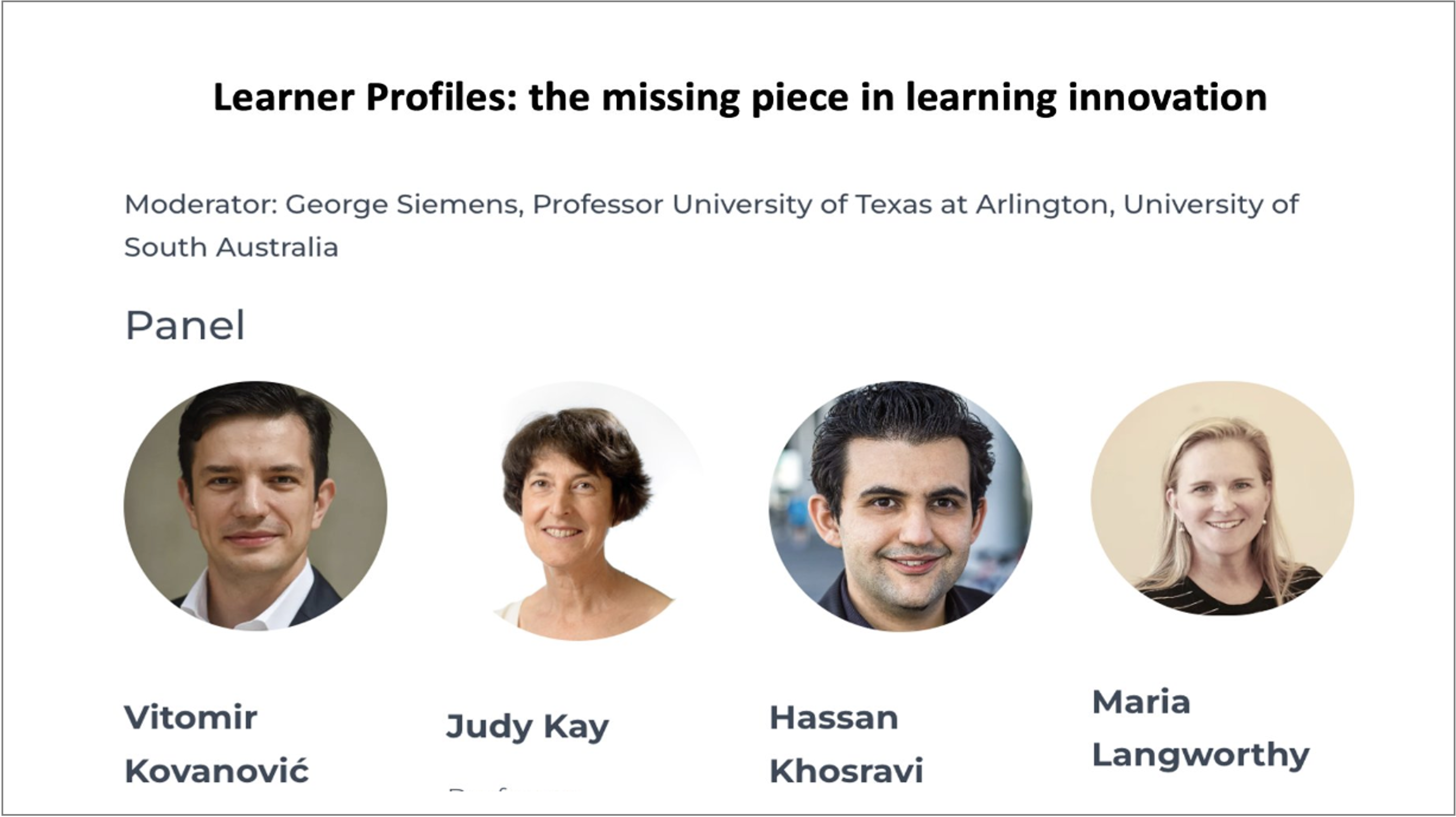
A Panel on Infrastructure for AI in Education
Video
As individuals move through life, learning is now a constant need. Traditionally, learning has been captured in the form of grades and transcripts. Continual life long learning, however, requires different mechanisms for communicating capabilities, mindsets, and competencies. Learner profiles have been explored from various lenses and a clear, generally accepted, framework does not yet exist. Attempts at learner modelling, learner records, and learning graphs indicate a growing awareness of the need to develop a persistent profile of what a learner has learned.
As individuals move between various stages of life – from K-12 to higher education, higher education to industry, and industry to reskilling – a learner profile would enable personalised learning and a record that accounts for what is learned outside of classrooms and formal education. For educators, learner profiles improve time to competence and ensure granular assessment. For state and national agencies, profiles provide a more nuanced assessment of learning gains within a system than current standard country-level comparisons. For learners, profiles improve quality of instruction, less time wasted on things already mastered, and greater recognition of learning that isn’t confined to classrooms. For researchers, profiles enable a deeper understanding of how learners learn, where interventions are most impactful, and ways to adjust and improve pedagogy and learning design.
This webinar will explore the history of learner profiles, detail actual work being conducted, and set the stage for future innovations and longer term systemic impact.
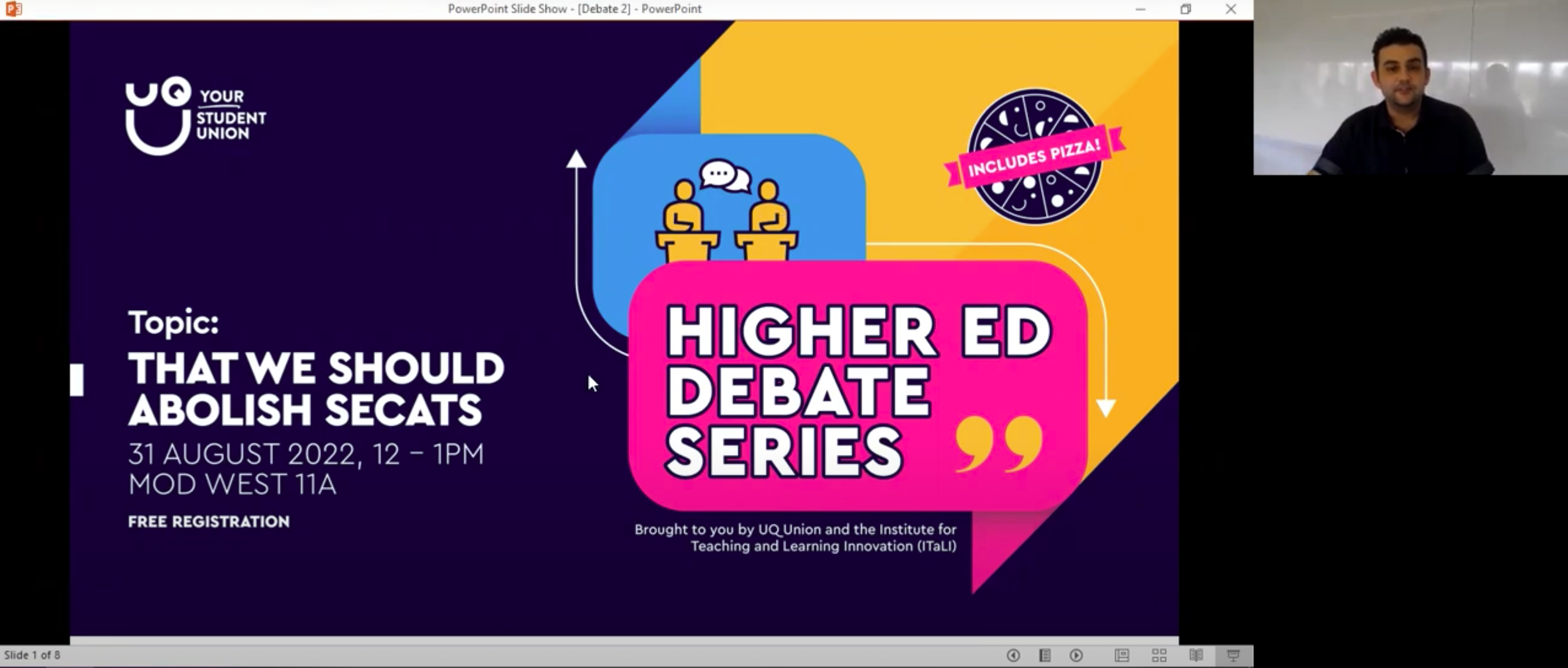
Higher Education Debate: That We Should Abolish Student Evaluation of Teaching
Debate Video
The Higher Ed Debate series invites UQ students and staff to engage in debates and share their vision on many controversial topics related to higher education and teaching and learning in the post-pandemic world.
The series is run in collaboration with UQ Student Union (UQU) and follows the common debate style of having two teams of three members, with one team supporting (affirmative) and one team opposing (negative) a topic.
in this debate, UQ staff and students are invited to debate whether SECaTs should be abolished... who will win?
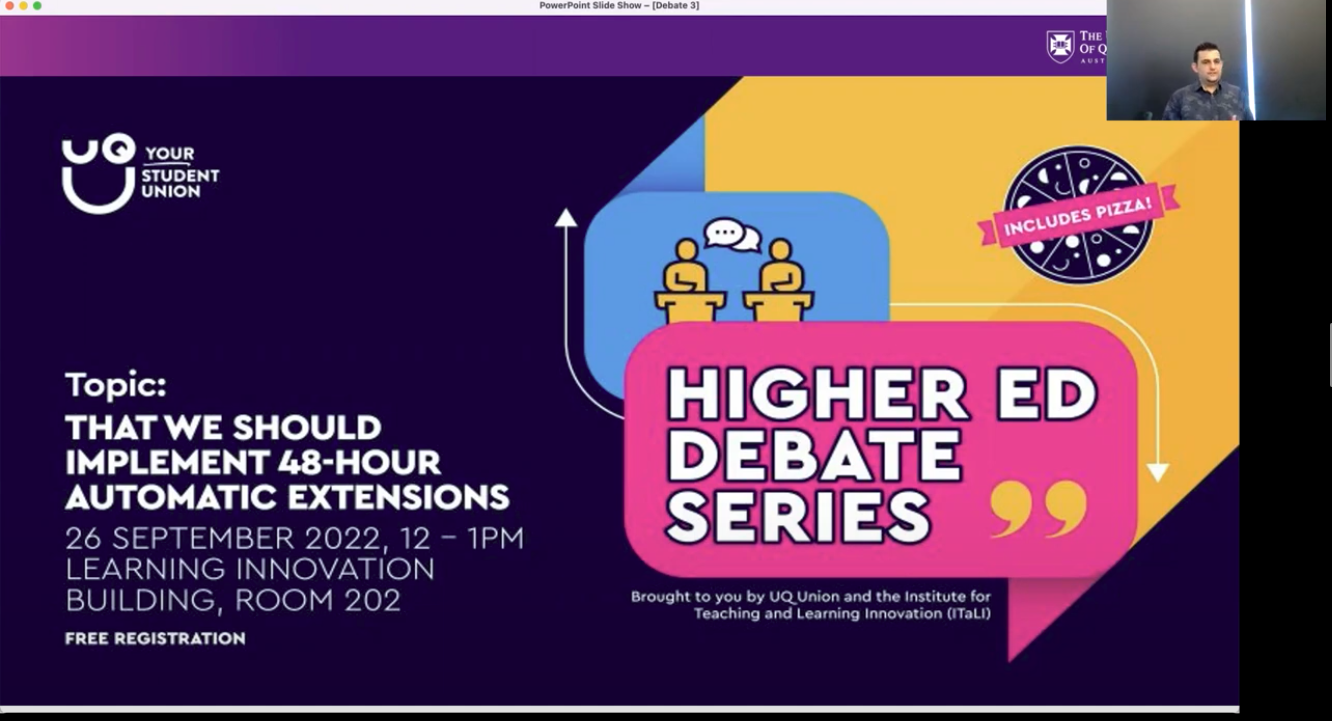
That we should implement 48-hour automatic extensions
Debate Video
The Higher Ed Debate series invites UQ students and staff to engage in debates and share their vision on many controversial topics related to higher education and teaching and learning in the post-pandemic world.
The series is run in collaboration with UQ Student Union (UQU) and follows the common debate style of having two teams of three members, with one team supporting (affirmative) and one team opposing (negative) a topic.
in this debate, UQ staff and students are invited to debate whether we should implement 48-hour automatic extensions... who will win?
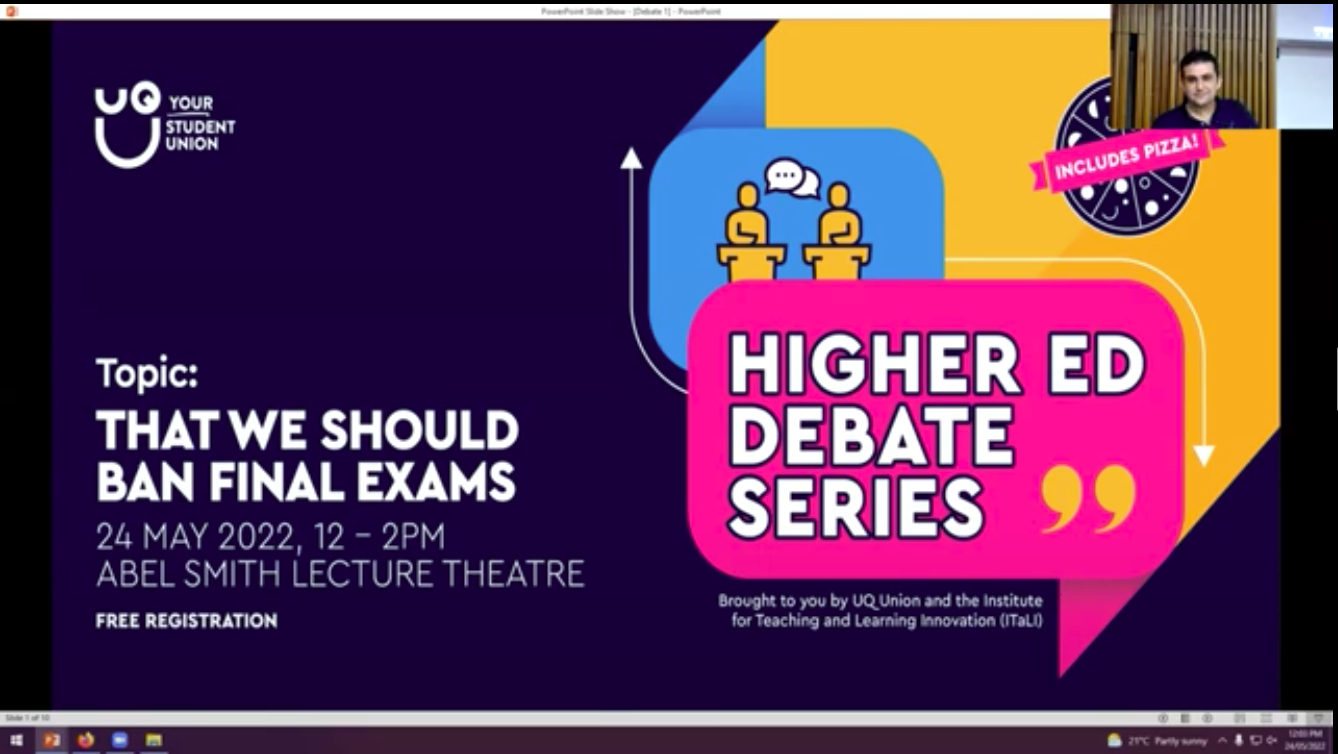
Higher Education Debate: That We Should Ban Final Exams
Debate Summary and VideoFor centuries, exams have played a central role in assessing student competencies. However, as the higher education landscape changes, there has been an increasing divide between educational practitioners about the benefits and drawbacks of exams. In the first debate from UQ's Higher Ed Debate series, we examined this controversy and invited staff and students to present their views on the topic That we should ban final exams. We followed the common debate style of having two teams of three members, with one team supporting (affirmative) and one team opposing (negative) the topic.

Australian education innovation: more than an emergency response
Campus Morning Mail Blog
Much of the discussion in the sector over the last 18 months has focussed on the challenges of shifting overnight to fully on-line delivery.
While this was a significant sector-wide challenge, we should not ignore the raft of innovative teaching and learning practices which were changing education well before COVID-19.
One of the more innovative examples is the University of Queensland’s RiPPLE platform. Dr Hassan Khosravi in the university’s Institute for Teaching and Learning Innovation wanted to provide more personalised learning opportunities to students, even across very large cohorts. RiPPLE therefore uses algorithms to adapt learning materials based on student performance, to estimate each student’s skills, and to actively monitor student progress.

The Ripple effect: making waves in teaching and learning
Short BlogA senior lecturer at The University of Queensland is gaining international attention for his innovative efforts to change tertiary level teaching and learning with the help of artificial intelligence. Dr Hassan Khosravi, a lecturer in Data Science and Learning Analytics in UQ’s Institute for Teaching and Learning Innovation, invented an AI based educational tool called RiPPLE which improves student engagement, satisfaction and learning.


